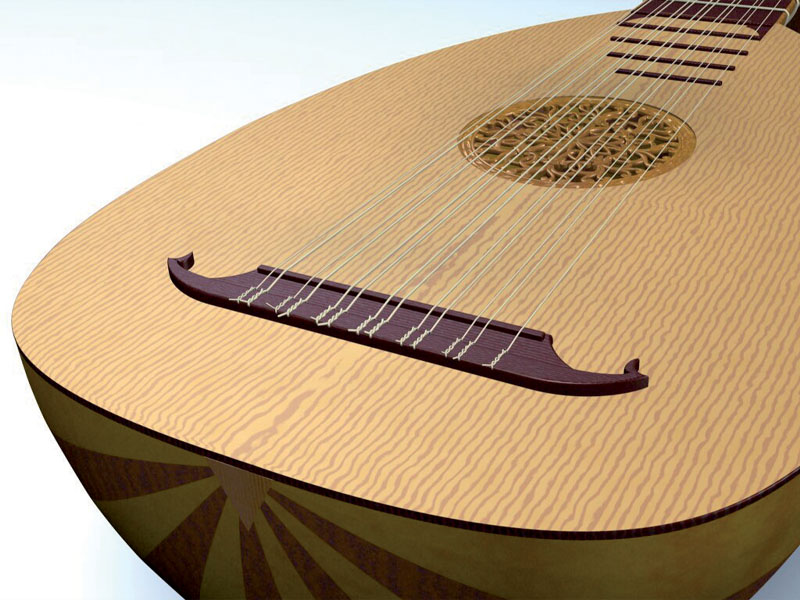Lute as an Arabic instrument
Issue 7

Mohamed Mahmooud - Syria
P hilosophers have important studies and a major role in the theory of the Lute, and if we go back to the most important manuscripts left by the geniuses of this art, we find the scientific description of the Lute and ways of learning how to play with it. The searcher deals with to word lute in Arabic dictionaries, which means stick or wood, although the lute wan known in the ancient age. There are inaccurate information about it and unknown to many even to some specialists. Western writers had created fallacies about its origin, and despite the use of the ancient Egyptians of the lute in the modern state in 1600 BC. It has been found in the Tiiba cemetery and is housed in the Egyptian Museum in Berlin, but we find some Western writers trying to create a kind of vague, but at the same time we find many writers who set clear that the lute had reached Europe by the Arabs We find (Paul Henry Lang) says “As for the stringed instruments manipulated by the wink, the lute has enjoyed an appreciation and his playing became popular in the Renaissance and Baroque, its origin ambiguous” (17) (Germ) and (Elizabeth Roche) say: “The lute has come to Europe from the east in the early Middle Ages,” without offering an accuracy from any lands of the East it came, at the same time we find a book explaining the truth and (Anthony Baines) says: the lute came to Europe from the Arab civilization near the end of the thirteenth century, “ (Giraud Frey Hindley)” says: the lute has entered to Europe from Muslim countries “(18) There is no doubt that the word lute itself in different languages emphasizes the Arabic origin, and definite article has coalesced with the pharyngeal ‘ayn for the difficulty of pronunciation, in English lute, in French luth, in Italian liuto, in German laute, and in Spanish laud. In spite of the fact that contemporary Western musical codification is more accurate and simpler, the Arabs preceded the West in codification many centuries by the alphabet, as one of the tools - as we have intimated – but the numbers indicate a number of dawawin.



































































